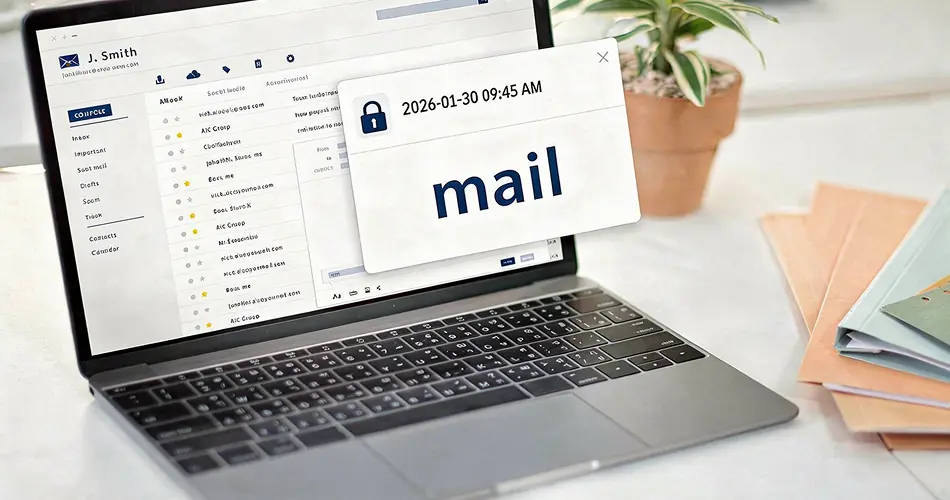Key takeaways
- Digital trust has become a strategic issue in securing digital workflows in the face of the increase in cyberattacks, fraud and regulatory requirements.
- It is based on four core pillars: data integrity, authenticity of the issuer, transparency and explainability of processes, and system security.
- Legally recognised trust services, such as qualified timestamping, electronic sealing and digital archiving, make it possible to produce digitally enforceable evidence.
- Digital trust strengthens both regulatory compliance (GDPR, DORA, AI Act), fraud prevention, and the credibility of organisations vis-à-vis their partners and clients.
- Its implementation requires a comprehensive approach combining risk analysis, legal and technical coordination, and the selection of an eIDAS-qualified trust service provider.
The importance of digital trust has grown as cyber threats, and fraudulent activities continue to rise. According to Cybersecurity Ventures, annual damages from cybercrime are projected to reach $10.5 trillion by the end of 2025. Additionally, data from cdp.com shows that nearly 75% of consumers report being more concerned about data privacy now compared to a few years ago, and 64% believe their data is less secure today. These trends emphasisethe need for businesses to adopt reliable digital frameworks that reassure stakeholders about the security of their data and transactions.
What is digital trust?
Digital trust forms the foundation for safe, reliable, and ethical digital interactions, enabling individuals, businesses, and institutions to engage confidently in the digital economy.
The importance of digital trust
Digital trust significantly improves customer loyalty and strengthens brand reputation by ensuring interactions are secure and reliable. It provides businesses with stability, supporting continuity and resilience by reducing exposure to fraud, managing disruptions, and maintaining operational efficiency. Digital trust also encourages innovation and broader digital adoption by creating an environment where stakeholders feel comfortable engaging with new technologies. By reducing risks associated with cyberattacks, fraud, and privacy breaches, it helps businesses mitigate potential threats and maintain credibility. Additionally, effective digital trust strategies support compliance with regulatory standards, such as GDPR or the AI Act, enabling organisations to readily provide credible evidence of compliance when required.
Where does digital trust apply?
Digital trust is relevant across numerous domains, ranging from individual privacy to corporate compliance. Key areas include verification of individual identities, traceability within supply chains, compliance with regulations such as GDPR or DORA, prevention of fraud, and the protection of financial and personal data against theft or manipulation.
The importance of digital trust for businesses
With most businesses increasingly involved in digitalisation, their reputation, regulatory compliance, and competitiveness ultimately depend on the trust placed by customers and partners in their digital activities. Digital trust solutions such as electronic seals, qualified timestamping, and digital archiving facilitate traceability, enhance the integrity and authenticity of data.
They constitute a fundamental step towards fraud prevention, transparency, and regulatory compliance. However, businesses often face challenges including technological complexity, the difficulty of producing admissible evidence in legal proceedings, and identifying appropriate providers of digital trust services.
The pillars of digital trust
Digital trust and integrity
Integrity involves ensuring data remains unaltered and free from tampering. Tools such as qualified electronic timestamping allow to certify the exact moment data was recorded, and when archived, to provide assurance that the data has not been modified over time.
Digital trust and authenticity
Authenticity verifies the origin and legitimacy of digital information. Electronic seals for example, authenticate corporate documents, enabling stakeholders to confirm precisely which legal entity issued them. Such seals also serve as valid evidentiary records, strengthening the admissibility in court of the digital bundle of evidence.
Digital trust, transparency and explainability
Transparency is a pillar of digital trust because it enables stakeholders, whether clients, partners, or regulators, to see and understand how a system operates, on what basis it records information, and whether it can be relied upon. Without visibility into processes and outcomes, trust cannot be established or sustained.
But transparency alone is not sufficient. In the context of digital trust, it must be paired with explainability, that is the capacity of an organisation to describe, in clear and understandable terms, how its systems work and why they are reliable. This is particularly relevant when deploying technologies that produce verifiable records, such as blockchain. Blockchain’s technical complexity often makes it difficult for users to explain how it functions. As a result, judges or regulatory authorities may question the reliability of the proof of records.
This is where regulatory frameworks like eIDAS (Electronic Identification, Authentication and Trust Services) offer a significant advantage. eIDAS-qualified trust services, such as electronic timestamping or electronic seals, are based on well-documented, standardised, and auditable processes defined by European regulation. Their legal reliability is clearly established and presumed by law. This regulatory grounding ensures a level of explainability that blockchain-based solutions often lack. Not only can the functioning of the service be explained in a comprehensible and structured way, but its trustworthiness is also formally recognised by courts and public authorities.
Digital trust and security
Security involves the implementation of strong protective tech measures to prevent unauthorised access into IT systems. End-to-end encryption and hashing are usually employed within digital trust solutions to protect critical data, securing sensitive communications and transactions effectively.
How to build digital trust in your business?
Establishing digital trust within an organisation is as much a matter of legal strategy in managing Digital trust strengthens legal reliability, protects operations against fraud and manipulation, and supports compliance with regulatory obligations. evidence as it is of technical decision-making.
Practical steps
To successfully build digital trust, businesses should start by clearly mapping out their digital trust needs and understanding their specific risk levels.
Then, ensuring buy in from all internal stakeholders, including legal, technical, and senior management teams, is critical to effectively implement digital trust solutions and maintain consistency throughout the organisation.
Once internal alignment is achieved, the next step is to select the right technology and the right digital trust provider, considering factors such as security guarantees, eIDAS qualifications, the ability to automate processes via API, and ensuring the solution matches the level of risk identified during the initial assessment.
Digital trust: 6 key takeaways
- Digital trust is central to sustaining confidence in digital transactions and records, especially as businesses face growing cyber threats and regulatory scrutiny.
- Building digital trust requires more than deploying technology—it involves legal foresight, internal coordination, and the ability to produce evidence that stands up in litigation.
- Digital trust solutions apply across various sectors—from legal documentation and financial transactions to supply chain traceability and pricing compliance—helping businesses maintain credibility and resilience in a digital environment.
- Four core principles underpin digital trust: integrity, authenticity, transparency (paired with explainability), and security. Each must be demonstrable and aligned with regulatory expectations.
- Qualified tools such as electronic seals, electronic timestamping, and electronic archiving systems provide businesses with legally credible mechanisms to protect data, prevent fraud, and support compliance.
- Practical implementation begins with assessing organisational risks, securing internal alignment, and selecting a provider whose solutions meet both legal and technical needs.
Evidency is an eIDAS qualified trust service provider that offers electronic timestamping and electronic sealing services to businesses that need to guarantee the integrity and authenticity of large volumes of critical data for evidential purposes. Services operate via API for simplicity of integration and use.
Disclaimer
The opinions, presentations, figures and estimates set forth on the website including in the blog are for informational purposes only and should not be construed as legal advice. For legal advice you should contact a legal professional in your jurisdiction.
The use of any content on this website, including in this blog, for any commercial purposes, including resale, is prohibited, unless permission is first obtained from Evidency. Request for permission should state the purpose and the extent of the reproduction. For non-commercial purposes, all material in this publication may be freely quoted or reprinted, but acknowledgement is required, together with a link to this website.




